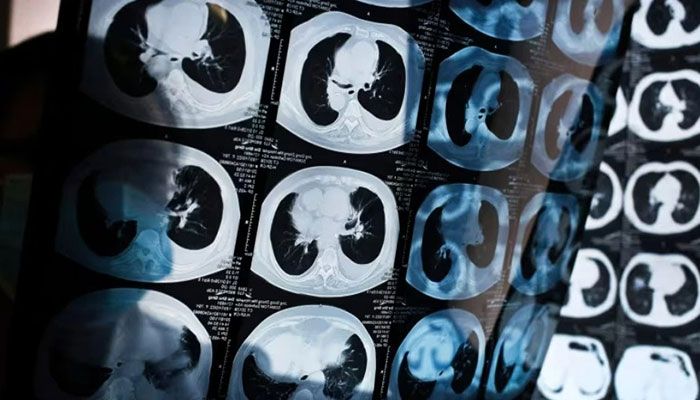
Desk Report
Publish: 01 May 2023, 04:39 pm

Photo: Collected
Researchers, doctors, and scientists have created an artificial intelligence model that can accurately diagnose cancer, a development that might accelerate patient access to treatment.
Cancer is the leading cause of death in the world. According to the World Health Organization, it causes around 10 million deaths every year, or roughly one in every six deaths. However, in many cases, the disease can be cured if detected early and treated promptly, reports The Guardian.
The artificial intelligence (AI) technology developed by experts at the Royal Marsden NHS Foundation Trust, the Institute of Cancer Research, London, and Imperial College London can determine if abnormal growths seen on CT scans are cancerous.
According to a study, the algorithm outperforms current approaches in terms of efficiency and effectiveness. The findings were reported in the Lancet's eBioMedicine journal, it said.
“In the future, we hope it will improve early detection and potentially make cancer treatment more successful by highlighting high-risk patients and fast-tracking them to earlier intervention,” said Dr Benjamin Hunter, a clinical oncology registrar at the Royal Marsden and a clinical research fellow at Imperial.
The researchers used CT images from 500 patients with big lung nodules to create an AI system based on radiomics. The technology can extract critical information from medical photos that the human eye cannot see.
The AI model was then put to the test to see if it could correctly detect malignant nodules.
The area under the curve (AUC) was used in the study to determine how good the model was in predicting cancer. An AUC of 1 suggests a flawless model, whereas an AUC of 0.5 would be predicted if the model was guessing at random, The Guardian report said.
The results showed that the AI model could predict the probability of cancer in each nodule with an AUC of 0.87. The Brock score, a test now used in clinic, scored 0.67. The model also performed similarly to another test, the Herder score, which had an AUC of 0.83.
“According to these initial results, our model appears to identify cancerous large lung nodules accurately,” Hunter said. “Next, we plan to test the technology on patients with large lung nodules in the clinic to see if it can accurately predict their risk of lung cancer.”
The AI model may also assist doctors in making more timely choices regarding patients with abnormal growths that are now classified as medium-risk, the report added.
The AI model, when combined with Herder, was able to detect high-risk patients in this group. According to the study, it would have indicated early care for 18 of 22 (82%) of the nodules that were later proved to be cancerous, it said.
The Libra project, which is supported by the Royal Marsden Cancer Charity, the National Institute for Health and Care Research, RM Partners, and Cancer Research UK, is still in its early stages, according to the team. More testing is needed before the model can be implemented in healthcare systems.
However, the potential benefits were obvious, they said. Researchers anticipate that the AI technology may someday be able to speed up cancer identification by assisting patients in receiving treatment and simplifying CT scan processing.
Subscribe Shampratik Deshkal Youtube Channel
© 2024 Shampratik Deshkal All Rights Reserved. Design & Developed By Root Soft Bangladesh